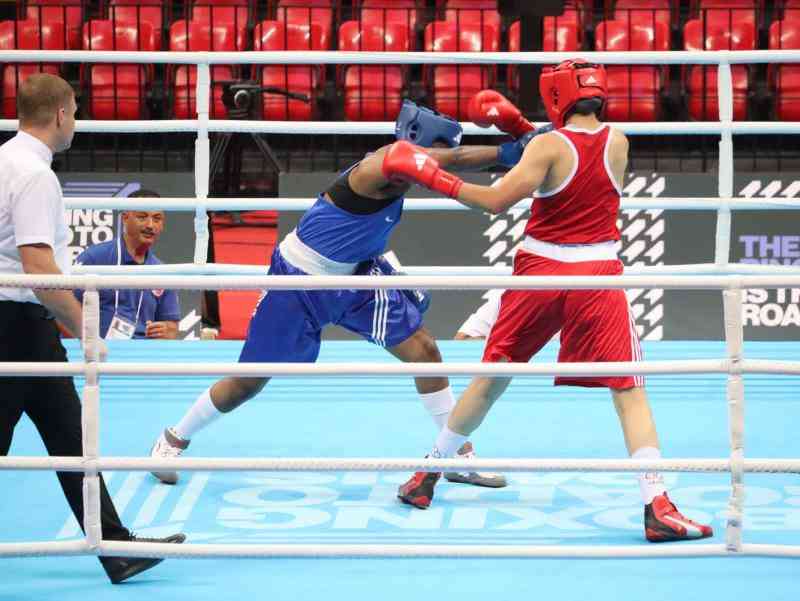Most terms - after exams - the first five positions in our daughter’s class are taken by girls. Girls keep changing the top honours, leaving the boys to play second fiddle.
Even the teachers have got used to this. It was only in the first examinations they sat this year that one boy managed to break into the top five. From the way Pudd’ng speaks, wondering how on earth that happened, I’m sure the girls are planning to give the boys a run for their school fees.
You can do this
In my primary school, there was a stigma of sorts that was placed on a boy being beaten by girls in academics or sports. Some of our peers and parents made us believe that girls were the weaker sex.
Now that I have a daughter, I keep encouraging her that she can be anything she wants to be.
I tell her that she should not let anyone, not even me, treat her like she’s the child of a lesser god.
In Pudd’ng’s class, the competition is on emerging top in math, as it is usually the paper that determines who will carry the day.
The competition is stiff among the girls. So much so that when they are given back their mathematics answer sheets, they go through them with a fine tooth comb. The Sherlock Holmes are trying to find out if the teacher made a mistake in marking and robbed them of that precious mark or two.
They are the perfect definition of due diligence. Each mark counts.
Sometimes my daughter recounts how she went through her math paper, and found that her teacher made a mistake. Or that the multiple choice answers were all wrong.
The math prize is not just the class’ bragging rights, but also the badge one gets to wear, and which tells all who is the numbers' boss.
Gender gap
A 1992 publication of the landmark report, How Schools Shortchange Girls, by the American Association of University Women Educational Foundation, brought gender equity to the forefront of educational reform.
“Near the turn of the new millennium, however, a few authors brought attention to the education gender gap for boys, showing that the national phenomenon of male underachievement has been nearly invisible in the gender-equity literature,” the report said.
“Among the core academic subjects, some are considered typically ‘male’, and others ‘female’. In spite of increased female enrollment in mathematics and science courses, ideas persist that these subjects are for boys, while the humanities and social sciences are for girls.”
Stay informed. Subscribe to our newsletter
Differences remain in boys’ and girls’ attitudes toward academic subjects. On average, girls report liking mathematics and science less than boys, and having less confidence in their ability to succeed at these subjects.
“Encouragingly, the gender gap in mathematics and science course enrollment is closing.”
Extracurricular gap
I don’t know if this is the same in other schools, but in Pudd’ng’s school the boys are more into extracurricular activities like football, while a bulk of members in clubs like debate, scouting and music are girls.
“Girls and boys tend to participate in different types of extracurricular activities, representing traditional areas of gender dominance,” the AAUW report noted.
“Females, for example, are more likely than males to participate in performing arts, belong to academic clubs, work on the school newspaper or yearbook, or participate in the student council or government. Females are also more active than males in community service. Males, on the other hand, are more likely than females to play on athletic teams.”
I think that, generally, boys are socialised, consciously or subconsciously, to gravitate toward pastimes that are “manly” in nature.
While in primary school, I was our Sunday school’s choir conductor. I loved singing. But I did not want my friends to know.
My desk mate, who lived near our church, would sneak in and watch as we practiced. The next day in school, she would look at me with awe and ask me to sing for her.
“Don’t tell anyone that I’m in the church choir,” I would plead. “Please?”
“Why?”
 The Standard Group Plc is a
multi-media organization with investments in media platforms spanning newspaper
print operations, television, radio broadcasting, digital and online services. The
Standard Group is recognized as a leading multi-media house in Kenya with a key
influence in matters of national and international interest.
The Standard Group Plc is a
multi-media organization with investments in media platforms spanning newspaper
print operations, television, radio broadcasting, digital and online services. The
Standard Group is recognized as a leading multi-media house in Kenya with a key
influence in matters of national and international interest.
 The Standard Group Plc is a
multi-media organization with investments in media platforms spanning newspaper
print operations, television, radio broadcasting, digital and online services. The
Standard Group is recognized as a leading multi-media house in Kenya with a key
influence in matters of national and international interest.
The Standard Group Plc is a
multi-media organization with investments in media platforms spanning newspaper
print operations, television, radio broadcasting, digital and online services. The
Standard Group is recognized as a leading multi-media house in Kenya with a key
influence in matters of national and international interest.





